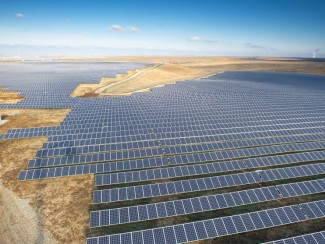The East African country of Tanzania faces a serious electrification challenge. Only 2 percent of rural households have access to electricity, and most of the rural population relies on expensive, hazardous and low-quality fuels such as kerosene for lighting and charcoal for cooking.
Access to electricity and other modern energy services is fundamental to human well-being and to a country’s social and economic development. In many countries, electrification through off-grid applications has become a cost-effective alternative to conventional grid expansion in remote areas — and this could become a model that propels Tanzania's next phase of economic growth. Already in the country, energy systems based on wind, small hydropower, biomass and solar resources are being used successfully to meet energy demand in isolated villages. By integrating these renewable-powered off-grid systems, rural communities are increasing their access to affordable energy supplies while contributing meaningfully to climate change mitigation.





